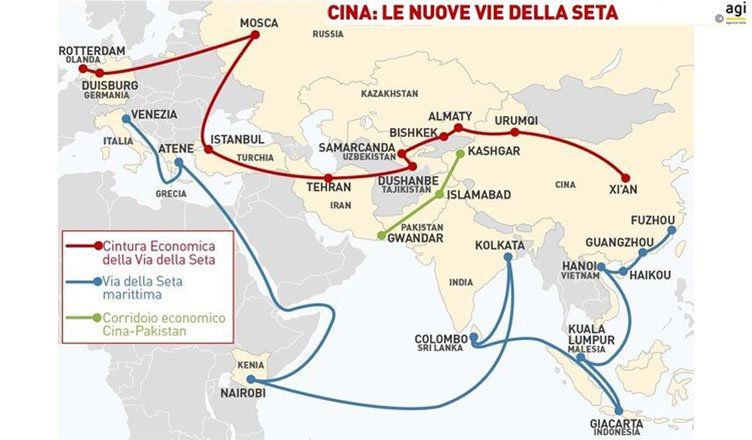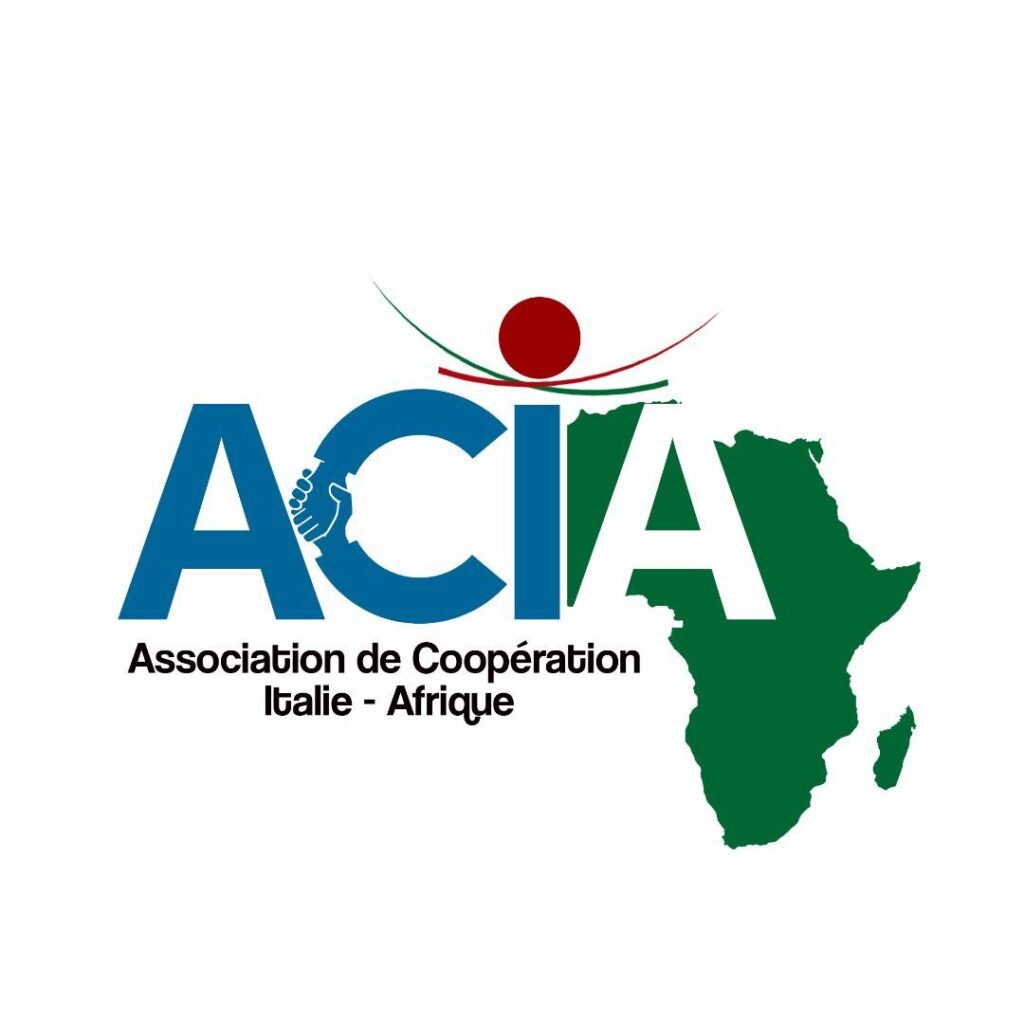How is China doing in Africa?
China has significantly intensified its economic presence in Africa over the past two decades, becoming one of the largest foreign investors on the continent. Between 2000 and 2019, Chinese public and private creditors lent USD 153 billion to African governments and state-owned enterprises. Focusing on Sub-Saharan Africa alone, China holds 62.1% of the region's external debt, with a growth of 43% between 2016 and 2020 alone.
Annual foreign direct investment (FDI) flows from China increased gradually between 2000 and 2021, reaching USD 5 billion in that year. Between 2017 and 2020, China was the largest investor in Africa by jobs and capital and the third largest by number of projects; in this three-year period, 20% of African capital came from China.
Infrastructure and urban development
In this context, China is playing a leading role, financing and building infrastructure and urban districts in many African cities. This development is rapidly changing the face of cities, albeit sometimes with difficulties in integrating with the local context.
China's major investment projects in Africa, both financial and infrastructural, are part of the so-called 'Belt and Road Initiative' (better known in Italian as 'New Silk Roads'), a majestic global development project that is being defined by Xi Jinping's presidency and that would like to create a network of trade and financial routes that, starting from China, would extend into the rest of Asia and reach Europe and Africa.
The biggest impact of Chinese business action in Africa, apart from loans and financial aid, is undoubtedly the infrastructure (roads, telecommunication systems, railways, health facilities) through which local governments can potentially fuel economic development. This constitutes something tangible for the populations who see a concrete improvement in their everyday living conditions.
Investment sectors
China does not only involve the resource-rich countries, such as Nigeria, Equatorial Guinea, Namibia and South Africa, but also the poorer ones, such as Eritrea, Uganda, Sudan and Kenya. The same concept is applied on a corporate level: Beijing has in fact involved large corporations and African state-owned companies as well as small and medium-sized enterprises.
At the sectoral level, there is also a clearer definition of priorities. The policy documents published following the Forum on China-Africa Cooperation (FOCAC) in 2021 showed a strong focus on energy and the environment, reflecting Chinese interest in both African resources and global leadership in these areas.
Finally, the information and communication technology (ICT) sector outlines the important role of Chinese government loans in enabling domestic companies to rapidly gain market supremacy in developing countries. Huawei, the Chinese telephony giant, landed in Africa in 1998 and today operates in forty countries on the continent, thanks in part to $6 billion in loans taken out with state banks in Beijing by as many as twenty-nine African governments.
Geopolitical implications
Politically, Africa is crucial for China. The continent holds more than a quarter of the votes in all UN bodies and is the largest bloc of countries in other agencies such as the World Trade Organisation, the Group of 77 and the Non-Aligned Movement. African votes have always been regarded by Beijing as decisive in achieving its foreign policy goals.
Africa has also been central to China's efforts in building alternative global institutions with the creation of the New Development Bank in 2014 among the Brics (Brazil, Russia, India, China and South Africa) and theAsia Infrastructure Investment Bankanother alternative lending mechanism created by China in 2015.
These instruments are now experiencing a revival. In Beijing, in fact, a re-conceptualisation of the international order is underway that consolidates the Chinese role through the strengthening of multilateral institutions such as the Brics and the creation of new development and security initiatives.
Challenges and future prospects
Despite the three-year reduction in Chinese investment in Africa, from $60 billion to $40 billion, announced by President Xi at the 8th FOCAC in 2021, this should not be read as a sign of Beijing's declining interest in the continent. First, because the decision is aligned with the more general global decline in China's overseas investment that began in 2016, following the spike to launch the Belt and Road Initiative.
The opportunities for China in Africa remain enormous, from infrastructure to digital, from energy and climate to transport. Moreover, tensions between China, Europe and the US could lead Chinese companies to give more space to the African context where a serious investment gap remains.
However, African diplomacy towards China through the FOCAC should express a broader strategic approach towards Asia as a whole, taking into account strategic partnerships with Japan (TICAD) and India (IAFS), which would call for more and better coordination of Africa's external partnership commitments.
China has taken a leading role in Africa, becoming one of the main foreign investors on the continent. Its economic expansion, focused on infrastructure and urban development, is rapidly changing the face of African cities. However, this process also presents challenges of integration with the local context and requires a broader African diplomacy towards Asia to maximise the benefits of these partnerships.
Belt and Road Initiative
The Belt and Road Initiative (BRI), known in Italian as the New Silk Road, is a strategic initiative launched by the People's Republic of China in 2013, under the leadership of President Xi Jinping. It aims to improve trade and infrastructure links between China and numerous countries in Eurasia, Africa and beyond through significant investments in infrastructure such as roads, railways, ports and energy facilities.

Objectives and Structure
The BIS has two main strands:
- The Terrestrial Silk RoadIt comprises a network of 'land bridges' that facilitate trade between China and Europe, passing through countries such as Pakistan and Russia.
- The Maritime Silk RoadIt aims to develop maritime routes connecting China with Europe and East Africa.
The initiative envisages investments estimated at over USD 1 trillion, involving some 68 countries, representing more than half the world's population and a significant portion of the global gross domestic product.
Economic and Geopolitical Implications
The BRI is not only an economic project, but also has significant geopolitical implications. It could enable China to strengthen its influence in strategic regions, promoting trade and cultural ties while reducing dependence on sea routes controlled by powers such as the United States. Critics of the initiative the see as a form of neo-colonialismin which China exerts political influence on developing countries through loans and investments.
Collaborations and Agreements
In 2019, Italy became the first G7 country to sign a memorandum of understanding with China on the BRIpaving the way for a series of agreements in various fields, including technology, energy and culture. These agreements aim to facilitate cooperation between Chinese and Italian companies, as well as to promote cultural and scientific exchanges.
In summary, the Belt and Road Initiative represents an ambitious attempt by China to expand its economic and political influence globally through a vast programme of infrastructure investments and international collaborations.
Investment sectors in Africa: Comparison between China and Europe
In recent years, both China and Europe have intensified their investments in Africa, but the sectors in which they focus differ significantly. This article analyses the main sectors attracting European versus Chinese investments, highlighting the strategies and priorities of each actor.
Chinese investment sectors in Africa
Chinese investments in Africa are mainly oriented towards:
- InfrastructureChina has invested heavily in the construction of roads, railways, ports and other essential infrastructure. In 2020, 29% of China's loans in Africa were for transport, followed by 25% for the energy sector and 11% for the mining sector.
- Mining sectorChina is very active in the mining sector, investing in projects to extract minerals essential for the global energy transition, such as lithium and cobalt. These minerals are crucial for the production of batteries and other green technologies.
- Energy: Chinese investments in the energy sector include both renewable energy and fossil fuel projects. China has financed numerous solar and wind power plants, but also continues to invest in oil and gas.
- Information and communication technology (ICT): Companies such as Huawei have established a significant presence in Africa, contributing to the development of telecommunications and digitisation on the continent.
- Between 2000 and 2019, Chinese public and private creditors lent USD 153 billion to African governments and state-owned companies.
- Annual foreign direct investment (FDI) flows from China increased gradually between 2000 and 2021, reaching USD 5 billion in that year.
- Between 2017 and 2020, China was the largest investor in Africa by jobs and capital and the third largest by number of projects; in this three-year period, 20% of African capital came from China.
- Chinese investments focus on large infrastructure projects such as roads, railways, ports and telecommunications as part of the Belt and Road Initiative.
- Beijing involved both large African corporations and state-owned companies as well as small and medium-sized enterprises.
- Priority sectors as mentioned above include energy, environment, information and communication technology (ICT).
European investment sectors in Africa
European investments, on the other hand, focus on different sectors, including:
- Agri-food sector: The European Union is Africa's first trading partner in the agricultural sector, with a strong focus on sustainable agriculture and food security. This sector represents a strategic opportunity to improve living conditions and promote rural development.
- Health: In recent years, Europe has increased investment in the health sector, recognising the importance of a sound health infrastructure for sustainable growth. Initiatives such as the European Commission's Global Gateway aim to support health development in Africa.
- Green technologies and sustainability: Europe is investing in projects related to renewable energy and environmental sustainability, seeking to promote environmentally friendly practices and reduce the environmental impact of economic activities in Africa.
- Training and skills developmentEuropean investments also include vocational training and skills development programmes aimed at improving the local workforce and promoting youth employment.
- Until the pre-Covid era, the European FDI characterised between 40 and 50% of the total investments in Africa.
- However, recent years have seen a slowdown in European investments and a decrease in their specific weight compared to other international players.
- France, Great Britain and the Netherlands are among the main European investors in Africa.
- The EU is trying to revive its presence with initiatives such as the Global Gateway programme, which aims to mobilise EUR 150 billion of investment in Africa between 2021 and 2027.
- The Gulf countries, in particular the United Arab Emirates, have also significantly increased their investments in Africa in recent years, focusing on sectors such as renewable energy and green hydrogen.
While China has taken the lead in investing in Africa, especially in infrastructure and large-scale projects, Europe is trying to revive its presence with new initiatives, but has yet to catch up with other international players such as China and the Gulf countries.
Key differences between Chinese and European investments
| Sector | Chinese investments | European Investments |
|---|---|---|
| Infrastructure | High priority, with focus on transport and energy | Present, but less centralised than in China |
| Mining sector | Strong focus on minerals and resources | Less focused, more on agriculture |
| Energy | Investment in renewables and fossil fuels | Greater emphasis on renewable energy and sustainability |
| ICT | Telecommunications development and digitisation | Present, but with focus on sustainability and training |
| Health | Limited investments | High priority, with focus on health infrastructure |
In which African countries is Chinese investment most concentrated
Chinese investments in Africa are mainly concentrated in a few key countries, particularly those rich in natural resources and with a growing demand for infrastructure. Here are the main African countries where Chinese investments are most significant:
- Nigeria: It accounts for about 17% of Chinese investments in Africa, due to its abundance of oil resources and ongoing infrastructure projects.
- Angola8% of investments, Angola is another important recipient, mainly because of its oil and gas reserves.
- Ethiopia: Ethiopia also receives 8% of Chinese investment, with a focus on infrastructure and industrial projects.
- KenyaWith 6% of investments, Kenya is a strategic hub for China, particularly for transport infrastructure.
- Zambia: It attracts 5% of Chinese investment, with a strong focus on mining and infrastructure.
- South Africa: South Africa also receives 5% of investment, due to its economic and trade position on the continent.

These investments are not only limited to resource-rich countries; China also has interests in poorer nations such as Eritrea and Uganda, demonstrating a diversified approach that includes both emerging and established economies. The Belt and Road Initiative has further stimulated this expansion, aiming to build an infrastructure network connecting China with Africa and beyond.
Final considerations
Chinese investments in Africa are strongly oriented towards infrastructure and extractive sectors while European investments focus more on agriculture, health and sustainability. This diversity reflects differences in the geopolitical and economic strategies of each actor, with China seeking to maximise its access to resources and Europe aiming to promote sustainable and inclusive development on the African continent.
The growing competition between China and Europe in Africa could lead to an evolution of investment dynamics, influencing the economic and social policies of African countries and their future development.






